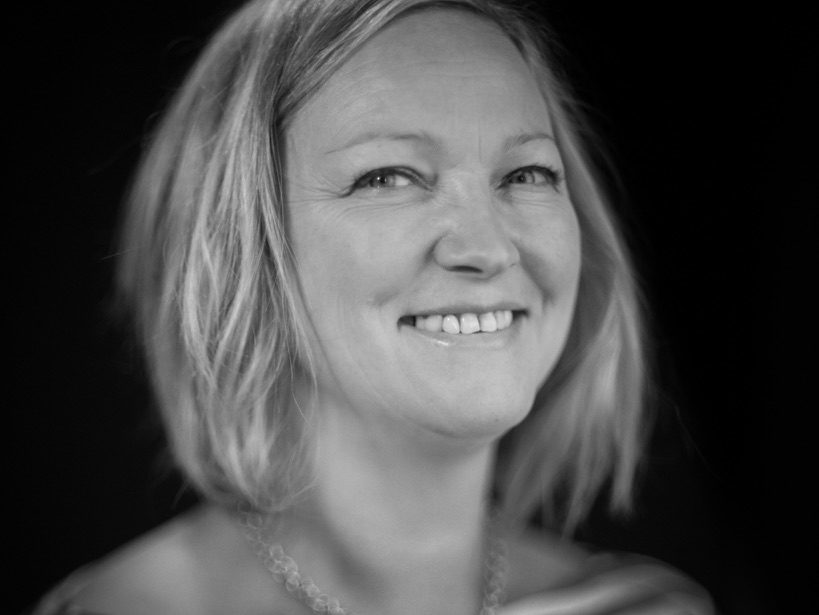Brits purchasing power halved: Top tips to make your money stretch with rising inflation
Even with talk of rising inflation hitting 4% by December, freelancers may not be taking the developments too seriously. They do have a life and job to get on with, right? That said, purchasing power in the UK has effectively halved, according to Joshua Gerstler, a chartered financial planner at Borehamwood-based The Orchard Practice. Come December, freelancers may be shocked just how expensive things become. Here are some top tips to fight inflation and get more out of your hard-earned money.
How can inflation affect my money?

In simple terms, inflation hitting 4% in 2022 would mean everything will cost 4% more than a year ago – adding 10p to a £2.65 latte, for example, or £200 to a £5,000 sofa, according to a report by the UK’s latest digital banking newcomer Chase. The average UK household expenditure is £2,548 a month – which could add £101.92 to their overheads every month.
“To keep up with predicted inflation, you’d need a 4% pay rise, after tax. Or your savings would need to be earning at least 4% interest. But with interest rates at 0.1% and the typical interest rate paid on new deposits down to a new low of 0.29%, things don’t balance out.,” said the report.
How can I beat inflation before it beats me?
The first thing you do is to go through your banking, credit card statements and even those loose receipts floating in your handbag or car. Are you paying too much for petrol? Takeaways?
To make the often dreaded experience of going through your direct debits and bank statements more pleasurable, put on some music that will remind you of a calm place or even a holiday away. Having a positive vision could be your incentive to get through this money-saving exercise.
Look at your utility bills first
- Broadband and mobile packages: look on your supplier’s website to see if they are offering any new deals as you may have been put on a fallback non-competitive rate after your initial package expired. Can you get a better deal on a bundle package or switch to a new supplier?
- Electricity bills are likely to rise due to fossil fuel shortages in Europe and supply chain backlogs. Therefore, see if you can get yourself a cheaper rate or even a low fixed rate that can take you through the next 12 months. If you are afaid that your supplier may go bust, contact Ofgem for the latest customer protections and the energy price cap. Many consumers are opting for “green” or renewable energy packages and suppliers, such as Octopus, Scottish Power and even British Gas because they are not dependent solely on fossil fuel price fluctuations.
Cancel direct debits that you don’t need
- Cancel direct debits to magzine and app subscriptions that you or your kids rarely use, that money could go towards a nice lunch or credit card bill instead.
- Make your coffee habit, less of a habit and more of a treat. The avwerage spend at a high street coffee shop is £5, so if you are making trips most days that could be £100 a month or £1000 or more a year.
- Are your kids unknowingly (or cheekily) buying apps and video games linked to your credit card? Keep an eye on this.
It’s time to lock in a cheaper mortgage deal
Your home has probably gone up in value in the past two years, so you may want to get it valued so you can get a better loan-to-value on a mortgage deal with a low, perhaps fixed rate to take into account of rising inflation.
There are more mortgage brokers catering to the self-employed now than at the height of the pandemic. If you are an IT contractor, some lenders consider you now ‘salaried and employed’, so your chances of getting a good rate are higher than probably the last time you went shopping for a mortgage.
Read our mortgage-related articles for more tips.
Time to move?
According to the latest report from Zoopla UK house prices have continued to increase by £44 per day on average across the past six months, while the number of homes available to buy has fallen by 28% compared to 2020.
Richard Eagling, Senior Personal Finance Expert at NerdWallet, said that spending more time at home and fewer days in the workplace is making people more open to a longer commute.
“Hybrid working combined with rising house prices seem to be compelling reasons why many individuals are prepared to travel that little bit further in order to find their desired property or live in their preferred location,” said Eagling.
Selling up and moving further out into the suburbs, a market town or the countryside could give you the house and location of your dreams and for less than you think. Most freelancers do not have to contemplate commute times, but those that do are looking to get more for their money and extending commute times, as we previously reported here.
How to use your bank to get “free” perks
If you can lock in a good savings rate for an emergency fund, then do it sooner rather than later. Try reverse budgeting, a great payday trick. After you’ve paid your bills, a set amount of earmarked money should be allocated to your savings first before you buy anything. You can always start moving more into your savings if you find you have money left at the end of the month.
Also, look for bank accounts that give you cashback on spending or free perks, like 2-for-the-price-of-one deals at restaurants and entertainment. These often can be lost on consumers because they don’t realise they are available. Often these deals can be found in your online banking app and listed on your bank’s site under your corresponding current account package. Keep an eye on these or sign up for product updates from your bank to take advantage of any benefits.
But these perks sometimes don’t come for free. For example, Lloyds customers will see their monthly banking charges soar this month. According to a news report, the changes will affect anyone who opened either a Lloyds Gold, Premier or Platinum account before 2005.
- The Gold account will now cost £14.95 per month
- the Platinum account will cost £21
- the Premier account will cost £28 every month.
In return, customers will still have access to lots of perks, which include travel insurance, mobile phone insurance and AA breakdown cover. On top of that. the Platinum account offers 15% cashback at retailers including the Co-op and Costa, and the Premier account adds home insurance cover and Identity Monitor to help you spot identity theft.
Overall, if you take advantage of these perks, which are bought in bulk by the bank, the monthly charge means you are getting more than what you pay for.
Buy store brands and watch ingredient prices
We often just grab for brands that we know, but if we can buy the store brands instead we can save a few quid every week. That means bread, butter, vegetables, cereals, cleaning products, etc.
If you love having a baguette with your work-from-lunch or dinner, you could save loads if you buy part-baked baguettes. You could have up to 4 part-baked rolls or baguettes for the price of one already baked at the supermarket bakery.
Some ingredients have jumped up in price, so just be aware, warns bakery business owner Gillian Ferguson.
Gillian Ferguson of Scotland-based Twisted Empire Bakes, said the energy crisis and high cost of living are “piling ever more pressure on top of already drowning small businesses.”
“One of my main ingredients has gone up by 25% and I supply the hard-hit hospitality sector so can’t put my prices up. I bake for a living and I’m worried about keeping the ovens on. Happy Brexit.”
Gillian Ferguson of Twisted Empire Bakes
And speaking of food, have you checked out Olio? Read about it here and get some free grub.
Do a movie montage in your own closet
Instead of buying new clothes, do some “shopping” in your own closet. Before you do, though do some scrolling on Pinterest and magazine sites for inspiration and mix and match your own clothes in new ways.
Another way to add some new threads to your wardrobe at no extra cost is to ask friends if they want to have a clothes exchange party at yours (everyone brings a nibble and a bottle to spread the cost). The theme of the party is everyone brings clothes and accessories that they don’t mind parting with. Everyone places their things on a large table and everyone shops at their leisure. It’s a great excuse to meet up with friends and you never know you may end up with a great new item (for free).
You could also do this with children’s clothing, books, tools, knick-knacks, homemade crafts (all great excuses to meet up). Any leftovers can be taken to a charity shop or back home.
Shop with purpose: Not on Amazon

Jamie Rackham, founder of Facebook group, NOT ON AMAZON, where nearly 150k indie makers can promote their products for free said with energy bills rising, inflation stubbornly high and tax rises to come, every penny counts.
“As a result of this, our community has grown faster than ever over the past month as members can promote their businesses and advertise their work on the page at no cost, which leaves more money in their pockets,” said Rackham.
If you want to buy a unique gift then NOT ON AMAZON should be your first port of call since you will also be supporting fellow freelancers.
Check out Jamie’s amazing story here.
Go to Gumtree or Nextdoor first
Our last tip is to turn to neighbourhood or localised apps, such as gumtree and NextDoor for free or deep discounted used goods. It’s also a great place for free advice about local services. You can even suggest swapping services (some gardening or DIY projects in exchange for a skill you can provide (writing, editing, website design, pet sitting, etc.). Freelancers and small businesses can also post their services in the Gumtree and NextDoor Business sections.
Pensions and investments
“Your purchasing power has effectively almost halved. In short, looking for the best savings rate to earn an extra £3 a year is not the answer. The answer is a well-diversified portfolio of global equities. Over the long term, equities have always provided better returns than cash and inflation,” says chartered financial planner Joshua Gerstler who works at The Orchard Practice.
The last thing freelancers and small business owners want to do is give up more of their salary to the Treasury than they have to. That is why ensuring your savings and investments are as tax efficient as possible is so important, as Roger Jackson, director of financial planning at Kendal-based IFA firm, Financial Management Bureau explains:
“In the current inflationary environment, rather than chasing small returns on short-term savings, it might be more fruitful to make sure you have the right investments with competitive charges and an optimised tax strategy. This can save thousands of pounds, not just a few pounds.”
Roger Jackson, Financial Management Bureau
So, before you spend, try to think how you could save instead and make it a daily practice. Wouldn’t you rather have more money to spend on family days out or even a weekend holiday than on a month’s worth of take-out coffees?


